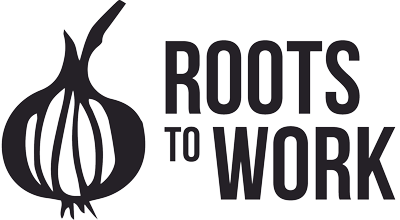
What do you do in the sustainable food and farming sector?
I am a social entrepreneur and the founder of Aké Collective, a health and wellness company dedicated to bringing African superfoods to empower individuals to make informed choices about their health and wellbeing while celebrating the diversity and beauty of nutrient rich superfoods that are available on the continent.
What was your route into this sector?
I came to Nigeria to do NYSC: a mandatory requirement for all Nigerian nationals post college education as their way of giving back to their country. As my service year came to an end, I wanted to stay but didn’t have a good enough reason to. My aunty and father are cassava farmers so they inspired me to consider doing something in agriculture. It was on a visit to Mile 12 in Lagos, trying to learn more about what Nigerian foods I wanted to work with that I discovered acha (fonio). After learning more about the grain and meeting some processors, it wasn't long before I had recruited a team of 3 acha farmers and 1 field officer. Once we had a couple of wholesale orders under our belt, I decided to explore moringa as many of our farmers at the time used moringa to demarcate their land. As we were promoting acha as a health and wellness product, it only made sense to explore moringa in the form of tea.
What challenges or obstacles have you faced in your career and how have you overcome them?
Being British-Nigerian, it was challenging not understanding the culture in Northern Nigeria where my business is. There are exceptions to the rule and variation between cultural groups, but I found that broadly speaking, the North runs on a trust economy. In business terms, this has meant that people have chosen not to work with me simply because they didn’t trust who I was, or because I wasn’t introduced formally by someone they did trust. At times, it has looked like a reluctance to continue trading with me if I have had to move in a different direction for the business.
I also think there are some generalisations regarding how women should navigate business. I don’t quite fit the Nigerian stereotype which has made it hard for some colleagues in the industry to trust and respect me, and even employees at times. While women may exist in the marketplace, few are traders on the scale that I am trying to pursue.
What impact are you’re trying to achieve and why?
We focus on crops that are underserved and if we are not careful there's a lot of cultural heritage that will be lost if we don’t do the work of cultivating, sharing and preserving them. Additionally we are constantly dealing with the precarity of being a smallholder farmer in Northern Nigeria, where if the farmers are left to cultivate crops that are not native to the region they might end up importing seeds that are not resilient; hence leading to serious loss and damage to farmlands. This is why we adopt a community-first approach.
We pay our farmers fairly for their irreplaceable contribution to our business. We also work hard to support people with opening bank accounts, registering for national identity numbers, and basic financial literacy skills.
What skills and experiences have helped you succeed as a social entrepreneur?
I think adaptability and resilience- I place my success on my ability to cope with change, uncertainty, and failure while still taking care of my personal wellbeing.
Who inspires your work in the movement?
Founder of The Body Shop, Anita Roddick, and my aunt Nike Tinubu who is the largest cassava processor in South West Nigeria.
What are your hopes for the future?
To bring African superfoods to as many people as possible, while inspiring moments of self-care and wellbeing and supporting our community of small-scale growers to thrive.
You can follow Aké Collective on Instagram and TikTok and find out more about the enterprise and products on www.akecollective.com.



